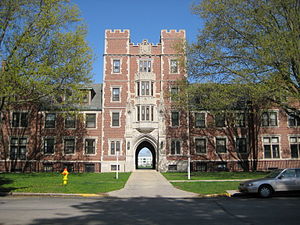Maybe it’s the software engineer in me, but this article from the Catholic News Agency really strikes a chord. When I’m writing code I have to follow a lot of programming standards and pay close attention to my logic. Even the smallest error could cause my program to fail. And it may not fail immediately, but that bug in my code still exists and will usually show up at the worst time. I think Pope Benedict has a similar approach to the Mass. In the article, he said that “attention to these details is important in order for the Mass to be a true conversation with the Lord.” I think this is a great thing to hear in a world full of, “do whatever you feel like; it’s the intention that counts, the details aren’t that important.” The Pope shows that all those details add up to a huge show of faith. Inversely, all those little faults add up to a breakdown of reverence for the Mass and for Jesus Christ.
You can see this breakdown in just about any Mass in America. You walk in only to see people sitting in the pews talking to each other. Throughout the Mass you might hear people whispering to one another (whispering if you’re lucky; talking in almost normal volume if you’re not). Some priests use their homilies as if they were practicing a stand up comedy routine. Sometimes the band or choir treat the Mass like a concert. And many times people clap at the end of Mass. Each one of these “details” is small and inconsequential. None of them are heresies. And yet, when put together the Mass quickly breaks down from a sacred conversation with the Lord to just another social gathering. This is what Pope Benedict warns us about and why he is so fond of preserving all the details of the Mass.
Now picture a church before Mass that is silent. People come in, kneel, say a small prayer, and meditate before Mass starts. The priest processes into the church and up to the altar and gives a solemn bow in front of the Blessed Sacrament. His homily touches on serious issues of Heaven, Hell, sin, etc. People approach the Body of Christ during Communion by either bowing or kneeling. And at the end of Mass, people leave quietly so as not to disturb the people who are still praying. Now in which Mass would one probably have a more constructive conversation with Jesus Christ. What Mass was more focused on honoring Him? It is true that Jesus is present in both Masses. That’s not the question. The real question is in what setting are you truly present and listening to Him? Details matter.
These details also appear in the rosary. What makes the rosary so great is that it provides a structured means of communicating with Jesus Christ. It has those mysteries and prayers for a reason. Each one draws attention to a certain aspect of our faith. Praying the rosary is a journey through the entire Gospel. We reflect on Jesus’ teachings, sufferings, and His ultimate glory. Like the Mass, the rosary just doesn’t work very well when we don’t focus on the details. We don’t get much out of the rosary when we pray it on auto-pilot. I’m sure God appreciates that you at least took the effort to pray, but you are capable of receiving so much more from the rosary with a little more effort.
As an end note, I encourage everyone to read the “General Instruction of the Roman Missal” (GIRM). See where your parish may be lacking in following these details and respectfully notify the pastor. Priests probably do forget those details over the years but they might appreciate knowing that it means a lot to people in their parishes if they follow them. Tell him how you read on some terrific little rosary web site how the Pope calls us all to follow the details of the Mass.
Related articles
- Crisis of Faith (rosarymeds.com)
- No Cross Too Heavy with God’s Love (rosarymeds.com)
- Do You See God’s Gifts? (rosarymeds.com)
- We Have to Return to the Rosary (deaconjohnspace.wordpress.com)
- Blessed is the Fruit of thy Womb…Two Rosary Meditations (catholicboyrichard.wordpress.com)






















